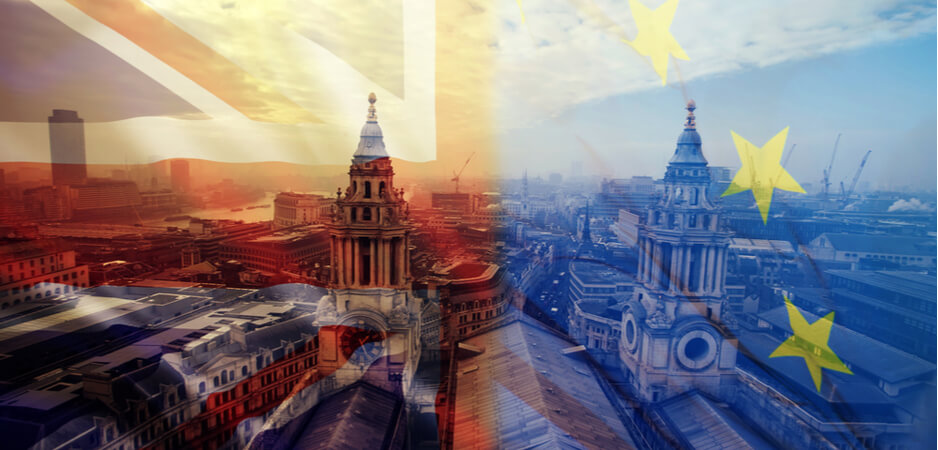As facts and civil discourse are abandoned for misinformation and hysteria, the democratic waters are becoming murkier.
On March 12, Theresa May will be given another opportunity to get her Brexit deal through Parliament. The British prime minister’s position is not envious. Jean-Claude Juncker, president of the European Commission, is still to blink on the question of the so-called Irish backstop, designed to ensure the Irish border remains open after Brexit. The provision is a deciding factor for many within the Conservative Party, and May’s refusal to abandon her negotiating wild card — the economic self-flagellation in the form of a no-deal Brexit — has led to more resignations from both the party and the cabinet.
Meanwhile, following the defeat of Labour’s Brexit proposal and May’s pledge to give MPs a vote on extending Article 50, a second referendum is becoming a plausible outcome.
But is this really a way out? Even if a larger youth turnout and a few swing voters were enough to secure a “remain” vote, this would still leave a large minority feeling that their voices had been constitutionally undermined. The only way to secure the direction of Britain’s future is to achieve consensus, both in Parliament and among the electorate.
To find a way forward, we must consider why Britain has been split so neatly in half. Presumably, the 48% of those who voted to stay in the European Union do not have radically different interests to the rest of the population. At least in terms of the impact of Brexit, there is more to unite Britons than to divide them. Of course, contrary to what economists would have us believe, not everyone acts in one’s own self-interest. Immigration, the most frequently cited concern among “leave” voters, divided hearts and minds long before June 2016. For others, questions of British sovereignty simply trumped economic concerns.
So, is the UK just a freak nation of diametrically opposed individuals who happen to share an island? Possibly. But perhaps we should look the roots of social polarization in the information provided to the general public.
Partisanship
Partisan newspapers might have a role to play. With perceived left and right-leaning papers such as The Guardian and The Telegraph (respectively) commanding loyal audiences, many of their readers do not have the time or inclination to seek out different perspectives. The result is that readers are led to believe that those on the other side are unreasonable and ignorant of the “real situation.” This problem is compounded by tabloid newspapers that, unsubtly bated with pictures of scantily-dressed women and celebrity gossip, often reap the awards of their wide circulation by peddling one-sided populist agendas.
However, tempting as it is for “remain” voters to portray The Daily Mail as a silver-tongued Iago of the impassioned Brexiteer, it is difficult to identify where newspapers influence, as opposed to merely reflect, public opinion.
In this age of the digital, we also cannot afford to discount the power of the internet. The argument that social media breeds echo chambers is often repeated — despite research indicating otherwise — but this is by no means the only factor. News reporting, once the domain of a few conglomerates, has been democratized. This shift has been marked by a deluge of content, all competing for our clicks with enticing headlines and shallow controversy. In the quest to go viral, simplistic and emotionally charged perspectives inevitably triumph over nuanced debate.
Yet though sensationalist media may be a source of fertile manure, politicians are needed to sow the seeds of polarization. In the lead up to the referendum, this was performed with aplomb. Vote Leave’s demonstrably false claims included the threat of an extra 5 million people potentially moving to the UK after countries like Turkey join the EU, as well as the infamous £350 million ($460 million) that would be saved weekly from going to the EU and redirected toward the National Health Service, derided by the UK Statistics Authority as a “clear misuse of official statistics.” On the other side, the so-called Project Fear of the pro-EU camp successfully alienated those it wished to convince with outlandish claims of economic collapse.
Misinformation and Hysteria
As facts and civil discourse are abandoned for misinformation and hysteria, the democratic waters are becoming murkier. A spate of resignations has reduced the government’s working majority in Parliament to just nine. On the web, a campaign of disinformation about the contents of the Lisbon Treaty, which comes into force next year, has gone viral. Meanwhile, the People’s Vote campaigners continue to preach to the choir of a cosmopolitan middle class with promises of a return to pre-Brexit prosperity, failing entirely to address the non-economic priorities of those who voted to “take back control.”
Without a greater degree of unanimity, a second referendum would serve only to aggravate existing tensions. The first step is to ensure the public understands what it is voting for. Even a single widely trusted, non-partisan source of information read by every voter would go a long way to ensuring the health of British democracy. One way to achieve this would be to produce a cross-party referendum manifesto.
But what would this look like? In order to be as politically neutral as possible, it would necessarily involve no value judgments. The material would be produced by topic experts, their findings subject to peer review and a regulator. It would need to deal with a wide range of issues important to voters, from questions of trade and immigration to effects on specific industries and employment. Where there is a degree of subjectivity, both sides would need a voice.
Impartiality is fairly achievable, at least in writing. The real challenge would be to secure public trust. It is for this reason that the findings would need to be put to Parliament. To ensure against a monopoly on truth, it would likely require more than a majority. Clearly, this crucible could only be passed if the contents were entirely uncontroversial.
Needless to say, this is idealistic. And even if it were possible, there would still be discord. A manifesto that appeals to both sides would be ipso facto unpersuasive. Nevertheless, it would enable voters to weigh their own values against the facts. For example, those who feel that Britain should have greater control of its borders would have a better idea of how Brexit would change this, as well as the possible impact this might have on trade and the job market. Moreover, statistics that contradict the contents of the manifesto would be called into greater scrutiny, thus giving politicians less freedom to twist the truth.
In a democracy, giving the electorate a clearer understanding of its vote is about as far as one can go. A second referendum would still risk further division. Even with a reliable source of information, the unanimity of a referendum relies on common values and the wisdom of the crowd. That said, better informing the voter would at least give us a chance to see what remains of both.
The views expressed in this article are the author’s own and do not necessarily reflect Fair Observer’s editorial policy.
Support Fair Observer
We rely on your support for our independence, diversity and quality.
For more than 10 years, Fair Observer has been free, fair and independent. No billionaire owns us, no advertisers control us. We are a reader-supported nonprofit. Unlike many other publications, we keep our content free for readers regardless of where they live or whether they can afford to pay. We have no paywalls and no ads.
In the post-truth era of fake news, echo chambers and filter bubbles, we publish a plurality of perspectives from around the world. Anyone can publish with us, but everyone goes through a rigorous editorial process. So, you get fact-checked, well-reasoned content instead of noise.
We publish 2,500+ voices from 90+ countries. We also conduct education and training programs
on subjects ranging from digital media and journalism to writing and critical thinking. This
doesn’t come cheap. Servers, editors, trainers and web developers cost
money.
Please consider supporting us on a regular basis as a recurring donor or a
sustaining member.
Will you support FO’s journalism?
We rely on your support for our independence, diversity and quality.







